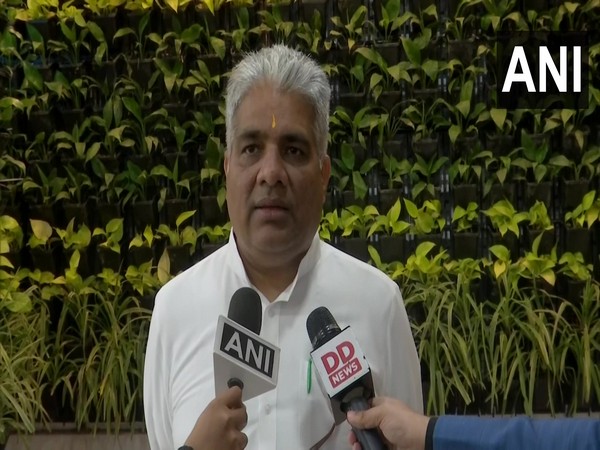India undoing ecological wrong by bringing back cheetahs: Bhupender Yadav
India is undoing an ecological wrong by bringing back the cheetah which became extinct in the country due to overhunting, Union Environment Minister Bhupender Yadav said on Friday.Addressing an event to mark the 28th Ozone Day, the minister also emphasised mindful utilisation of energy for cooling purposes.India is one of those countries which believe in undoing ecological wrongs.

- Country:
- India
India is undoing an ecological wrong by bringing back the cheetah which became extinct in the country due to overhunting, Union Environment Minister Bhupender Yadav said on Friday.
Addressing an event to mark the 28th Ozone Day, the minister also emphasised mindful utilisation of energy for cooling purposes.
''India is one of those countries which believe in undoing ecological wrongs. A mistake should be rectified. Cheetahs became extinct in India due to overhunting. We have decided to bring the large carnivore back. This ecological wrong is being undone,'' Yadav said.
Prime Minister Narendra Modi is set to release eight cheetahs -- five females and three males -- being brought from Namibia in Madhya Pradesh's Kuno National Park on his birthday on Saturday.
The cheetah is the only large carnivore which was completely wiped out from India due to its use for coursing, sport hunting, overhunting and habitat loss. The government declared the animal extinct in 1952.
Yadav said India, as a party to the Vienna Convention for Protection of the Ozone Layer and its Montreal Protocol, has played a proactive role in the phasing out of production and consumption of ozone depleting substances.
''This is no less than a success story,'' he added.
The minister said India, under the leadership of PM Modi, launched the India Cooling Action Plan (ICAP) in March 2019, a first-of-its-kind effort in the world.
The primary objective of ICAP is having an integrated long-term vision to reduce cooling demand, enhance energy efficiency, and advance technology options.
Yadav also said the developed countries, which have 17 per cent of the world's population, account for 60 per cent of the global carbon emissions.
''Whereas, India is home to 17 per cent of the world's population and is responsible for only 4 per cent of the global carbon emissions. This is because of our sustainable lifestyle,'' he said.
India will continue on the path of development keeping in mind PM Modi's mantra of LIFE (Lifestyle for Environment), which calls for mindful consumption of resources, he said.
(This story has not been edited by Devdiscourse staff and is auto-generated from a syndicated feed.)
ALSO READ
PM Modi to kick off NDA's Lok Sabha poll campaign in Bihar on Thursday
Ahead of his Bihar rally, Congress posts '4 questions for PM Modi', seeks his stance on caste-census
PM Modi to address rally in Bengal's Cooch Behar on Thursday
Cong questions PM Modi over his stance on Bihar Mahagathbandhan govt's caste survey
"Congress seems to have lost their mental balance," BJP's Sudhanshu Trivedi on Charan Das Mahant's alleged remarks against PM Modi










